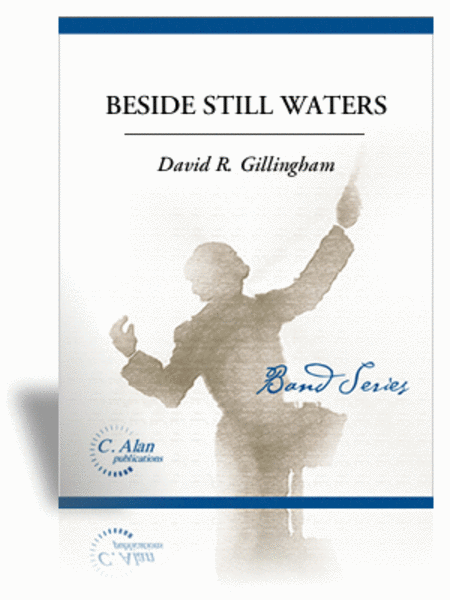Beside Still Waters
-
Ships in 3 to 4 weeks
Details
Description
SKU: CN.18161
Composed by David Gillingham. Score only. Duration 6:00. Published by C. Alan Publications (CN.18161).Beside Still Water's is a chorale fantasy on the hymn He Leadeth Me seeking to highlight both the peaceful and dramatic message of the words. As you have come to expect from Gillingham, this masterful wind ensemble work is appropriate in both sacred and secular settings.
In 1862, Newton Theological student, Joseph H. Gilmore, wrote the words to the hymn, He Leadeth Me, having been inspired by one of his own sermons on the 23rd Psalm. The words, He leadeth me from the Psalm took on new meaning for Gilmore and in a matter of minutes, he had penciled out the words to this new hymn. It was later set to music by William B. Bradbury. The title of this work is inspired by the third line of Psalm 23, He leads me beside still waters. Beside Still Waters is a chorale fantasy on the Bradbury tune and seeks to highlight both the peaceful and dramatic message of the words. The work begins with the murmurring of the still water by clarinets with the flutes singing the verse of the hymn. This builds to the first refrain of the hymn played by the entire ensemble. Following, is a short development section begun by the timpani and percussion suggesting the line, o'er troubled sea, still 'tis his hand that leadeth me. This segues to a quiet section in E Major suggested by the line, where Eden's bowers bloom, by waters still and then followed by a fanfare-like transition inspired by the lines, when by thy grace the victory's won, e'en death's cold wave I will not flee, since God through Jordan leadeth me. A final statement of the hymn follows via a tour de force of the full ensemble in C major with trumpets and horns singing the tune. The refrain follows with a dramatic change to D major on the last strain. A coda follows which utilizes motives of the hymn tune and gradually subsides ending quietly as it began.

 Share
Share